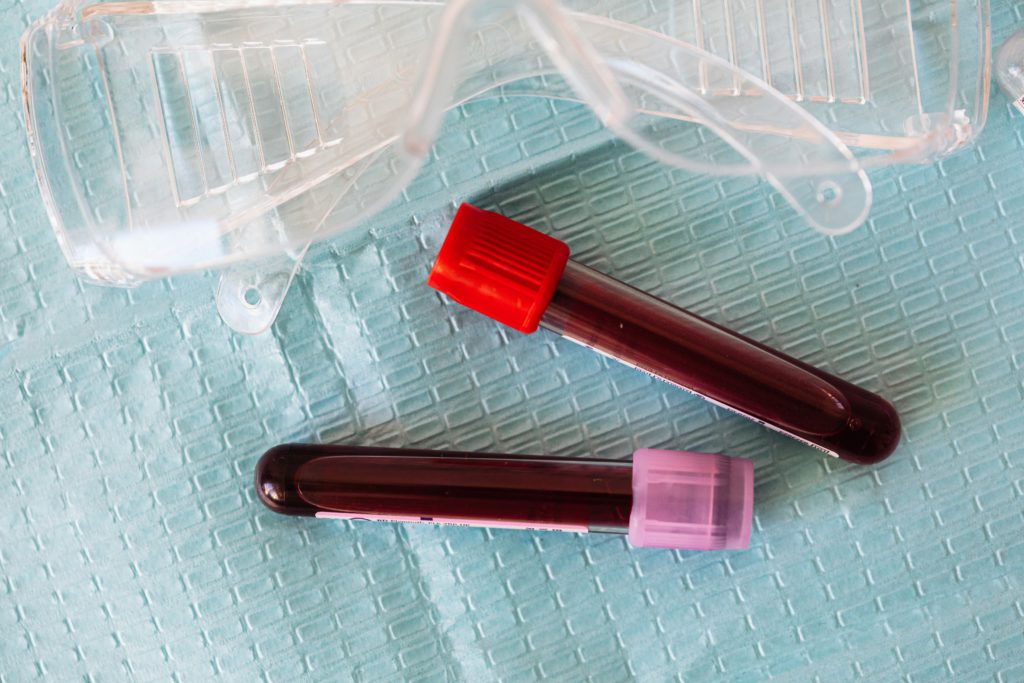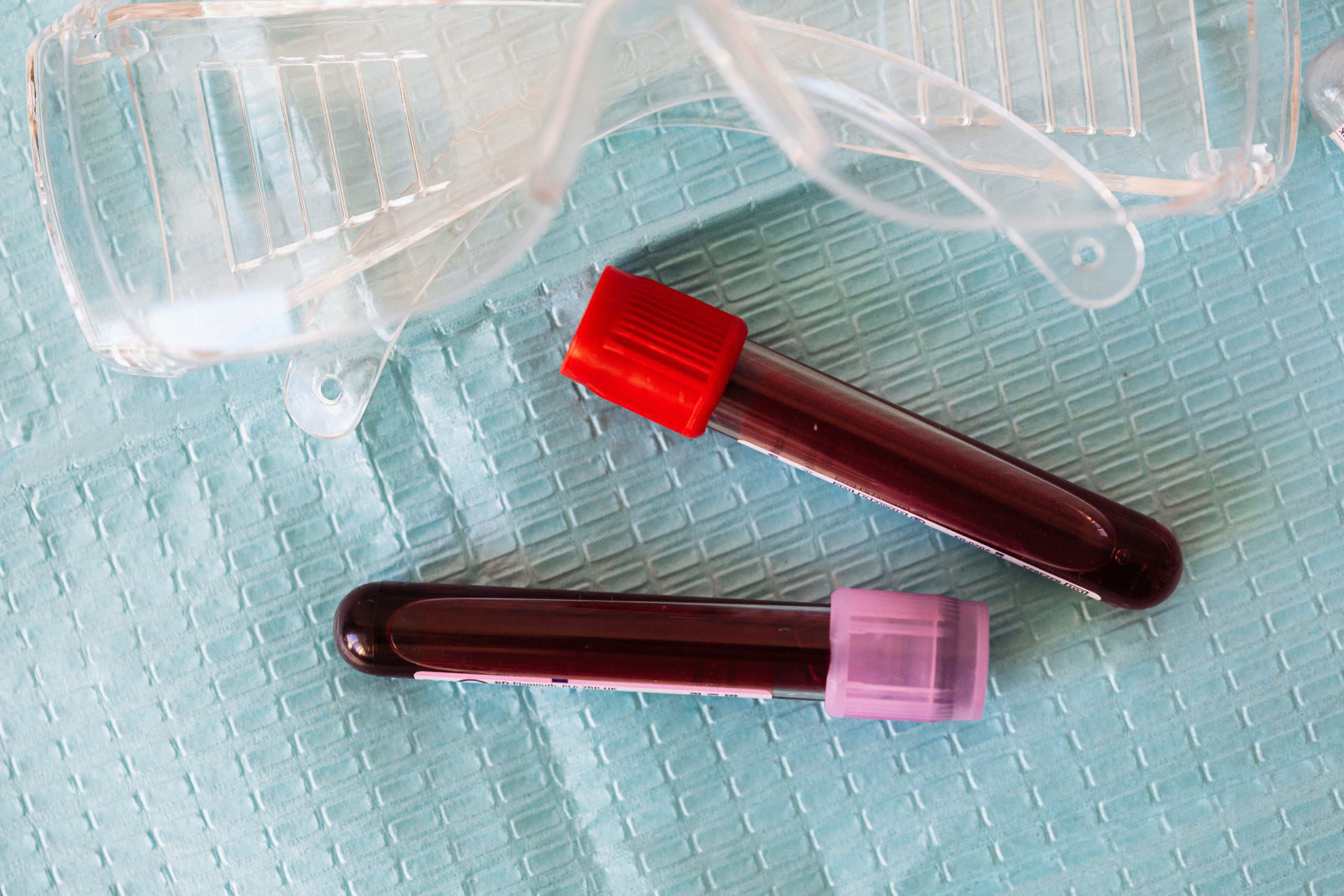
The Chem 8 panel goes by many names, but is most commonly known as the basic metabolic panel. Eight blood tests make up the basic metabolic panel, which gives details about your body’s metabolism. The BMP blood test measures blood glucose or blood sugar levels, blood acid/base balance, and kidney function. If your doctor has requested you have this test performed, or you are an organization who wishes to perform this test, you can reach out to Speedy Sticks and book an appointment today. We can perform blood draws from the comfort of your own home or office.
What is a Chem 8 Panel
The following are the tests that will be conducted when this panel is ordered.
Glucose
A blood glucose test measures the amount of glucose (sugar) in a person’s blood and detects diabetes. A hormone produced by the pancreas is insulin. Its duty is to transport glucose from the bloodstream to the tissues’ cells. The amount of glucose in your blood quickly increases after eating. Enough insulin is released by the pancreas in response to the elevated glucose levels, causing the glucose to be transported from the blood into the cells. This aids in lowering blood sugar levels to their pre-lower state.
Two circumstances can result in an increase in blood sugar in a diabetic, either insulin production by the pancreas is insufficient, or the insulin is not functioning correctly. Both of these circumstances cause the blood sugar level to remain high, which is referred to as hyperglycemia or diabetes mellitus.
Transcend Glucose Gel Packs – Strawberry
opens in a new window
Why Transcend Glucose Gel Packs?
Maintaining stable blood sugar levels is vital for your health, especially if you have diabetes or are at risk of developing the condition. Transcend Glucose Gel Packs are a convenient and tasty solution to manage glucose levels on the go. With the delightful taste of strawberries, these gel packs are not only delicious but also effective in providing a quick energy boost when needed.
Why We Recommend Them:
We highly recommend incorporating Transcend Glucose Gel Packs into your daily routine, especially if you’re monitoring your blood sugar levels or seeking a quick and reliable source of energy. These packs are perfect for individuals managing diabetes or anyone looking for a healthy snack alternative.
You can conveniently purchase Transcend Glucose Gel Packs here. Don’t just rely on test results; empower yourself with proactive choices. Try Transcend Glucose Gel Packs today and embrace a healthier, more energetic you!
Electrolytes and Fluids
Electrolytes are electrically charged minerals that aid in maintaining the proper balance of acids and bases in your body as well as fluids. They also support the regulation of heart rhythm, muscle and neuron activity, and other crucial processes. A blood test called an electrolyte panel, often called a serum electrolyte test, analyzes the concentrations of the body’s primary electrolytes. These are sodium, chloride, potassium, and bicarbonate.
Sodium
Blood volume and the amount of fluid around cells are both influenced by the total amount of sodium in the body. The blood’s volume and sodium content are constantly being monitored by the body. Sensors in the heart, blood arteries, and kidneys may detect increases in either when they reach unhealthy levels. These sensors then prompt the kidneys to enhance salt excretion, which lowers blood volume back to normal. When this isn’t working correctly, it can affect your nerves, muscles and kidney function.
Chloride
The level of chloride in your blood is determined via a chloride blood test. An example of an electrolyte is chloride. Electrolytes are electrically charged minerals that aid in maintaining your body’s pH balance, fluid balance, and acid-base balance. When diagnosing or keeping track of illnesses, including renal disease, heart failure, liver disease, and excessive blood pressure, chloride is frequently measured along with other electrolytes.
Potassium
The level of potassium in your blood is determined via a potassium blood test. The test frequently forms a part of an electrolyte panel. It could be applied to track or identify ailments caused by excessive potassium levels. Heart disease, excessive blood pressure, and kidney disease are some of these disorders.
Bicarbonate
Carbon dioxide (CO2), a gas waste product produced when your body burns food for energy, and is a form of bicarbonate. Bicarbonate is a type of electrolyte that helps keep your body hydrated and ensures the proper acidity of your blood. Diarrhea, liver failure, kidney disease, and anorexia are just a few of the disorders that can be indicated by too much or too little bicarbonate in the body.
Fluid Tactical – Electrolyte Powder Packets
opens in a new window
Proper hydration and electrolyte balance are fundamental to your overall well-being. Whether you’re an athlete, a fitness enthusiast, or someone who wants to stay on top of their health game, Fluid Tactical Electrolyte Powder Packets are your perfect companion.
Why Fluid Tactical Electrolyte Powder Packets?
Rapid Rehydration: Fluid Tactical Electrolyte Powder Packets are designed to quickly replenish lost electrolytes, ensuring your body stays hydrated and energized even during intense physical activities or hot weather.
Balanced Electrolytes: Electrolytes are essential minerals that help maintain various bodily functions, including muscle contractions and nerve impulses. Fluid Tactical’s carefully formulated blend ensures you maintain the right balance, preventing muscle cramps and fatigue.
Convenience On-the-Go: These powder packets are convenient and easy to use. Just mix them with water, and you have a refreshing, electrolyte-packed drink ready to go, wherever your day takes you.
Quality and Purity: Fluid Tactical Electrolyte Powder Packets are made with high-quality ingredients, free from artificial colors and preservatives. You can trust the purity of what you’re putting into your body.
Why We Recommend Them:
We highly recommend trying Fluid Tactical Electrolyte Powder Packets for yourself. Whether you’re preparing for a marathon, recovering from an illness, or simply aiming to lead a healthier lifestyle, these packets can make a significant difference in how you feel every day.
To get started on your journey to optimal hydration and well-being, order your Fluid Tactical Electrolyte Powder Packets today. Your body will thank you for the extra care and attention.
Remember, your health is an investment, and Fluid Tactical Electrolyte Powder Packets are a step in the right direction. Stay hydrated, stay healthy!
Kidney Tests
Tests for kidney function make sure your kidneys are functioning properly. Healthy kidneys aid your body’s ability to eliminate waste. Your kidney function may be impacted by illnesses like diabetes or high blood pressure. To identify or rule out an infection, you might also require a kidney function test.
Creatinine
The results of a creatinine test indicate how well your kidneys are removing waste from your blood. A chemical byproduct of your muscles’ energy-generating mechanisms is creatinine. The blood is filtered by healthy kidneys to remove creatinine. Your body excretes creatinine as a waste product in urine. The amount of creatinine in your blood or urine might give your doctor information about how well your kidneys are functioning.
BUN (Blood Urea Nitrogen)
The blood urea nitrogen (BUN) test provides crucial details about how effectively your kidneys are functioning. With this test, our blood’s level of urea nitrogen is measured. If your urea nitrogen levels are higher than usual, this may not be a good sign.
BUN/Creatinine Ratio
Acute or chronic renal (kidney) disease or injury is diagnosed using the BUN/Creatinine ratio blood test. The sum of the two together side by side is helpful in assessing renal function. It can also be used to identify gastrointestinal bleeding or trauma. This is because both creatinine and BUN (blood urea nitrogen) are filtered in the kidneys and eliminated in the urine.
The Takeaway
A Chem 8 panel goes by many names, but when your doctor advises a blood test is performed, they are looking for anything that might signal something is making you sick. If your doctor has asked that you have certain blood tests performed, or you are an organization who wants to perform these tests, you can reach out to Speedy Sticks with any questions or book an appointment today! We can perform blood draws from the comfort of your home or office with our team of phlebotomists, nurses, and professionals.

Affiliate Disclosure: Please note that we may earn a commission from Amazon if you make a purchase through the affiliate links provided on this page. This comes at no extra cost to you. We recommend these products because we believe in their quality and usefulness to our readers. Your support through these links helps us continue to provide valuable content on dental health and wellness. Thank you for your trust and support.








